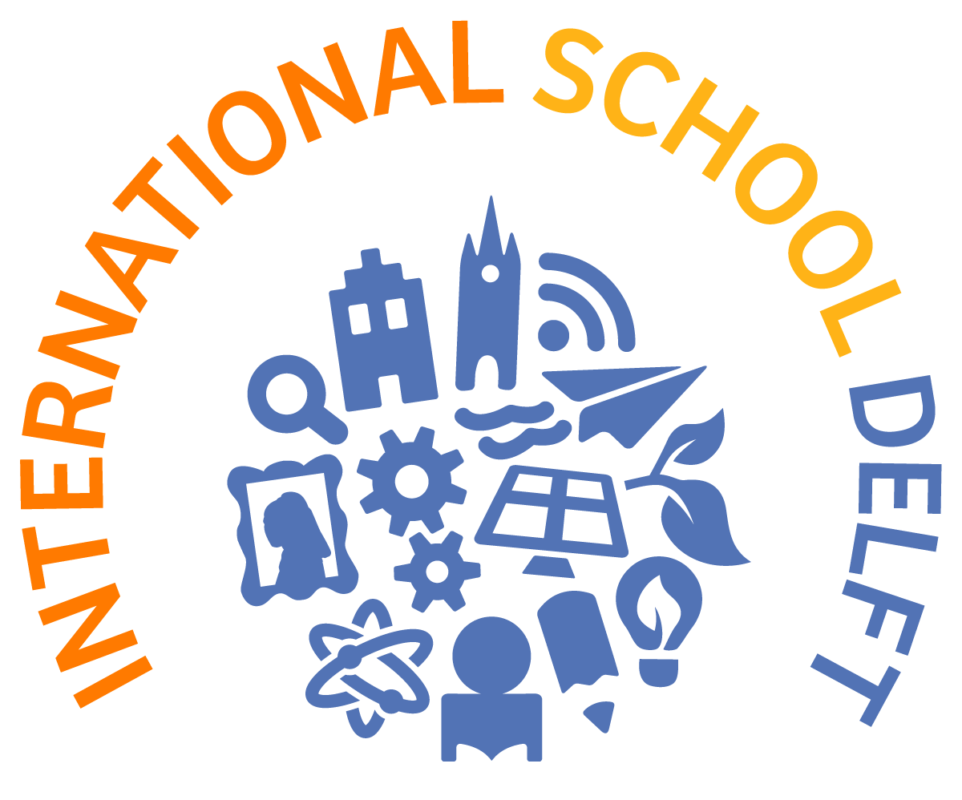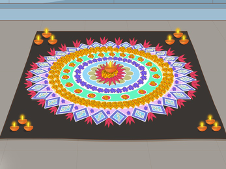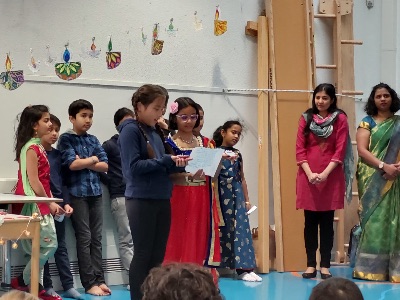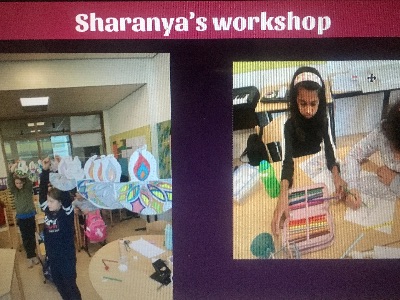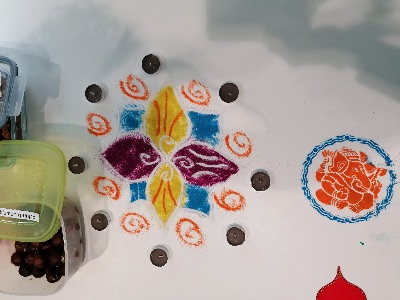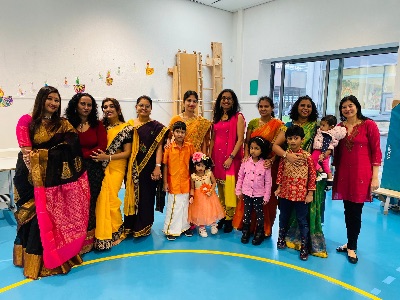Contribution by Ms Renu Ochai
We had our Diwali assembly on the 8th of November where we had the opportunity to engage our students in cultural festivities. Ms Ilein, our music teacher, and a couple of children from PYP 6 performed a traditional tune to start off the assembly. Participating parents and children came dressed in beautiful Indian clothes. Children shared their Diwali stories and greetings in their home languages. Children from India were excited to show which part of India they belong to. All the children had something unique to share about Diwali which made it very special. Parents from India helped decorate the gym in beautiful rangoli patterns and lamps! They prepared traditional Indian food and sweets. It was lovely to see all the beautiful colours and decorations!
Our PYP 5 class teacher Ms Kristi, taught a short Bhangra (traditional folk dance) to her students. They were excited to perform in front of the school and enjoyed celebrating the holiday. It was the perfect end to the assembly as Ms Kristi encouraged the audience to participate and try a few bhangra moves!
What is Diwali?
Known as the festival of lights, Diwali is celebrated all over the world across various religions and cultures, especially in South Asia. Diwali 2021 occurs on Thursday, November 4. In India, the five-day celebration traditionally marks the biggest holiday of the year.
Looking at the origin of the festival, there isn’t just one reason to celebrate the five-day holiday. Many of the stories are about the triumph of good over evil. In northern India, a common tale associated with Diwali is about King Rama, one of the incarnations of the god Vishnu. When an evil king in Lanka captures Rama’s wife Sita, he “builds up an army of monkeys” to rescue her. The monkeys “build a bridge over from India to Sri Lanka, and they invade Sri Lanka and free Sita and kill that evil king,” he says. As Rama and Sita return to the north, “millions of lights are spread out across the city Ayodhya just to help them come back home, just to welcome them.” Lighting lamps has long been one of the ways to celebrate Diwali. The literal translation of Deepavali is “a row of lamps and lights.” Diwali is observed differently by Hindus, Jains, Sikhs and Buddhists, creating a rich tapestry of cultural traditions and customs.
